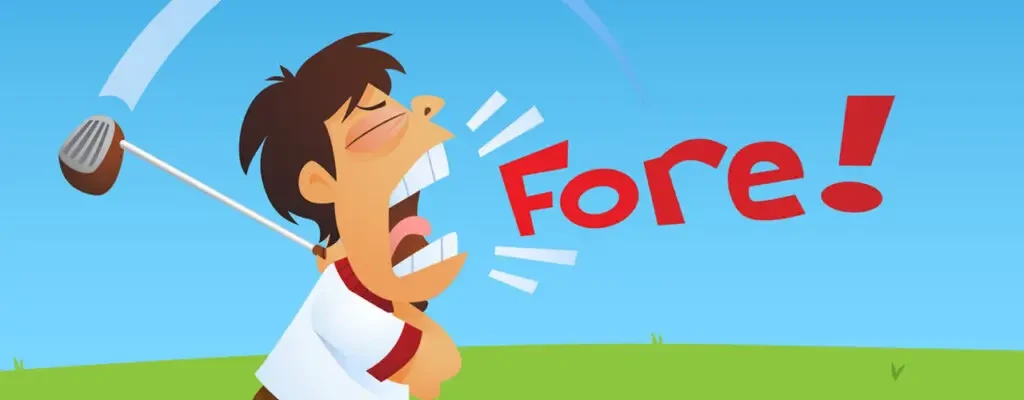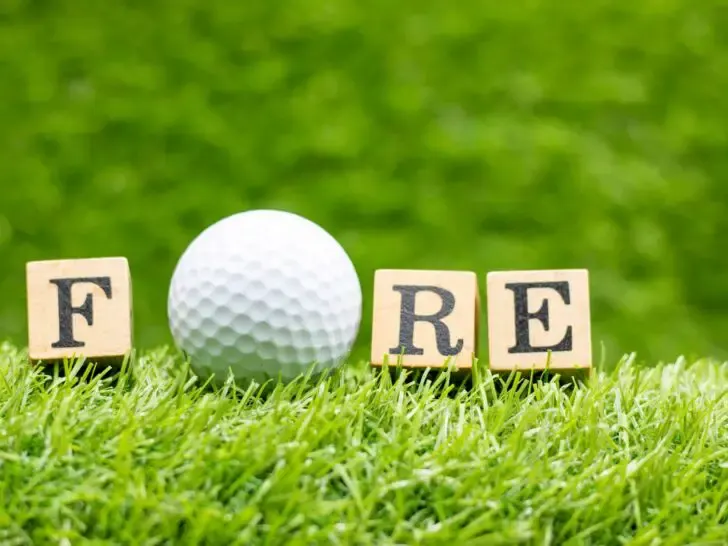Golfers yell fore when they hit a shot that is heading in the direction of another group of players or people.
The term is used as a warning.
It’s like yelling “Watch out!” or “Heads up!” but as the term “fore” is only one syllable, it is much easier to quickly yell when needed.
When Should You Yell Fore?
Anytime you hit a shot that is headed toward someone, whether or not they appear to be aware of it.
For example, if you slice one off the tee on hole two and it is heading towards a group on the fairway on hole 5, you should immediately yell, “Fore!”
It is common for others in the errant shot’s group to also yell fore to ensure that those in the path of the ball get the message and move out of the way.
If you yell fore and those in the path of the ball show no reaction, you should continue to yell fore.
What To Do When You Hear Someone Yell Fore

If you have some idea of where the shout is coming from, look in that direction and try to find the ball in the air to ensure it doesn’t hit you.
More commonly, you won’t have enough time to identify a golf ball flying a hundred miles an hour at you, so the best course of action is to duck, cover your head, and hope it doesn’t hit you.
As long as the ball doesn’t hit your head, you are very unlikely to be seriously injured.
Where The Term Fore Comes From
The term “fore” is a shortened version of the term “forecaddie.”
A forecaddie is a term from the late 1800s and early 1900s for a person whose job was to stand in front of a group of golfers and watch where their balls landed.
For example, if a group of golfers was on the tee, the forecaddie would position himself about where most players would be expected to hit their drives, perhaps 200-250 yards ahead.
The forecaddie’s job was to watch each player’s ball and keep track of where they landed.
This allowed a more enjoyable game for players because they didn’t have to worry about looking for errant shots and lost balls.
When the player or group was about to hit, they would yell “forecaddie!” to let the forecaddie know that shots would be coming in soon.
Eventually, this call was shortened to “fore.”
As forecaddies became less and less common, the term “fore” morphed from being a term used to alert someone who was expecting a golf ball to be coming towards them to a term used to alert someone who was not expecting a golf ball to be coming towards them.
Remember, if there is any chance of your golf ball hitting someone else, don’t hesitate:
Yell “Fore!”

